15 products
- White Wine
- Chardonnay
- Sustainable, Vegan-Friendly
- Dry
- Medium Bodied
- 750ml
- 12.5% alc./vol
About the Winery
Domaine de Mauperthuis

A family estate created by Marie-Noëlle & Laurent Ternynck, Domaine de Mauperthuis is located in Prehy, near the town of Chablis. Their wines express the terroir of this amazing region and the vineyards are currently undergoing the transition to organic. Domaine de Mauperthuis covers around twenty hectares of vineyards around Chablis. The estate, in the Burgundy appellation, is planted in Chardonnay, Pinot Noir, Sauvignon and César, on land facing south, benefiting from exceptional sunshine.
Press Reviews
Wine Align
91 points - David Lawrason
This is a quite rich, slightly oxidative style of unoaked chardonnay with pale golden colour and a ripe nose of baked apple. Peach pie, toasty lees and vague nuttiness. It is medium weight, smooth and almost creamy with fine acidity and mineral underpinning. The length is excellent. Tasted June 2022
- Sparkling Wine
- Chardonnay
- Sustainable, Vegan-Friendly
- Dry
- Medium Bodied
- 750ml
- 12.00% alc./vol
About the Winery
Domaine Baud Père et Fils

The history of Domaine Baud dates back to 1742, and it wasn't until 1950 when René Baud, the 7th generation, rebuilt the vineyard which had suffered from the phylloxera crisis and two World Wars.
Starting with only 4 hectares, the vineyard progressively expanded to 20 hectares with the help of successive generations. Now, managed by siblings Clémentine and Bastien, the 9th generation, the estate continues to flourish and grow, with a strong commitment to sustainable viticulture and preserving the traditions and style that makes the wines of the Jura so unique and incredible.
The estate achieved the Terra Vitis certification in 2014 for its eco-friendly work and environmental preservation.
Press Reviews
Wine Align
92 points - David Lawrason
This is a very tasty, rich, golden hued, well aged chardonnay-based sparkler with an involved nose of cashew, baked apple, nougat and honey. It is almost creamy in texture with fine mousse and very good acidity providing counterpoint. There is pleasant nutty bitterness on the finish; length is excellent.
91 points - Michael Godel
Varietal chardonnay that sees a year of lees aging with a dosage to reach the desired Brut. A richness and also dried herbal notes plus fennel that is offset by a creamy sweetness melting and melded through the pictorial texture of a wine so sharp and yet so soft. One imagines the Baud family being led by such humans and when a wine acts as an expression of they, well isn’t that the point in a wine like this? Drink 2022-2024. Tasted July 2022.
Baud’s Crémant is made in true Blanc de Blancs style, from 100 per cent chardonnay and though faintly if beautifully oxidative, the cuvée pulses with great energy. The scents of fraying ginger batons, scraped orange skin and baking almond cookies are all a treat for the olfactory. Just enough but not too much sweetness fleshes the the body to get down to density in mouthfeel but never abandons its airy character. A terrific Champagne alternative that was disgorged in October of 2017. Drink 2018-2022. Tasted April 2018.
Treve Ring
91 points
This family estate dates back to 1742, but it wasn't until 1950 when René Baud, 7th generation, rebuilt the vineyards, expanding from 4 hectares into 20 hectares over the years. Today the estate is managed by siblings Clémentine and Bastien, 9th generation. This sustainably farmed chardonnay is rooted in the Jura's marl and limestone soils and was fermented in stainless before a year on lees before disgorgement and release. Green apple, white florals, oyster shells, meadow herbs, meringue run the bright, sleek palate, with a bed of creamy lees. There's a lovely streaming anise note that leads to a lengthy finish. Drinking beautifully now, but will hold over the next couple years easy.
- Red Wine
- Gamay
- Biodynamic, Sustainable, Vegan-Friendly, Volcanic
- Dry
- Medium Bodied
- 750ml
- 13% alc./vol
About the Winery
Stéphane Aviron
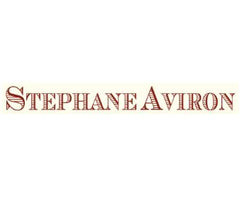
Stéphane Aviron can be considered a pioneer in his approach to winemaking in Beaujolais, however he would just tell you that he’s simply returning to the traditional practices that have always made fantastic Gamay wines. Sustainable viticulture, extremely old vines and classic Burgundian techniques. He focuses on the Beaujolais village crus, all but forgotten gems of vineyards when the nouveau craze took over, which are the best sites for unique, expressive and terroir driven wines. All of the fruit is sourced from old vines (40+ years), so seeing Vieilles Vignes on the label is a rite of passage, not a privilege. Authenticity and a distinctly Beaujolais style of winemaking is what sets Stéphane apart from the rest.
Press Reviews
Wine Align
93 points - David Lawrason
Chenas is one of the smallest appellations of Beaujolais, situated astride more famous Fleurie. Both villages tend to make gamays with both richness and elegance. This sports a ripe nose of cherry/strawberry jam, peony and subtle pepper. It is medium bodied, smooth, firm and refined with gentle tannin. And the length is excellent. Very easy to enjoy now and should hold through 2028. Tasted June 2022
92 points - Megha Jandhyala
This is a fetching gamay with buoyant fruit notes of cherries and raspberries accompanied by aromas of candied violets, rosemary, and snapped twigs. The palate echoes these flavours with subtle notes of cured meat joining the chorus. Tannins are satin smooth and acids are tart. Length is excellent with a delightful fruity finale. Best 2022-2027. Tasted June 2022 by Critic Understudy Megha Jandhyala.
91 points - John Szabo, MS
This is a pleasantly twiggy-herbal-stemmy expression of Chenas with plenty of joyful fruit underpinning the ensemble. I like the fleshy dark cherry fruit on the palate, the silky-firm tannins, and the excellent length in the category. A superior cru; drink or hold late into the decade. Tasted June 2022.
91 points - Michael Godel
Chénas by Aviron is the cru that takes what the Villages offers and simply gives more. By home and vineyard the extrapolation and extension is natural, seamless and duly noted, from dancing fruit, happy palate and now, something viably more. Salumi and wet stone, a modicum of structure, violets in perfume and furthered texture. A positive thickening that stays with the palate, lingers and gracefully moves on. This is gamay to pour for people ready to get it and get at it. Drink 2022-2026. Tasted June 2022.
90 points - Sara d'Amato
An intriguing mix of ripe and jammy along with stemmy and herbal from the warm 2020 vintage. Juicy on the palate with flavours of cherry, bramble, wet leaf and a hint of carbonic. Mouthfilling and fleshy overall with plush red fruit on the finish of very good length. Tasted June 2022.
- Rosé Wine
- Grenache, Syrah
- Organic, Vegan-Friendly
- Dry
- Medium Bodied
- 750ml
- 13.5% alc./vol
About the Winery
Mas Carlot

Mas Carlot is situated in the south of the Rhône Valley, extending across 76 hectares of pebbly land southeast of Nîmes. Originally a 17th century farm, this beautiful estate was resurrected in the 1960's by the Blanc family—it is currently run Cyril Mares of the neighbouring and equally reputable property, Mas Bressades.
The appellation of Costières de Nîmes used to be considered part of eastern Languedoc but the climate, soil, topography and wine are far closer to those just over the river in the Southern Côtes du Rhône. It is now a region very much on the up and is widely recognized as a great source of excellent value wine.
Press Reviews
Robert Parker
91 points
Mas Carlot's 2021 Costieres de Nimes Rose Generations is a terrific blend of 55% Grenache, 35% Syrah and 10% Mourvèdre. Offering up generous aromas of strawberry, watermelon and lime, it's medium-bodied, plump and expansive on the palate. Made in a traditional style, with more color and extraction than the skinnier, more citrusy Provence wannabes, this is a lovely wine, with touches of silk and spice on the finish, not just citrus.
- Red Wine
- Gamay
- Organic
- Dry
- Light Bodied
- 750ml
- 13% alc./vol
About the Winery
Domaine du Château de La Chaize
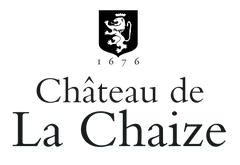
Château de La Chaize is among the oldest, most historic estates in Burgundy’s Beaujolais region. Cared for by the same family for nearly three and a half centuries, the estate has been passed on to new owners, the Gruy family, who are equally committed to managing the estate with the utmost care, while implementing an ambitious environmental plan. Among the many initiatives is the conversion of all vineyards to organic farming, the adoption of precision viticulture, reducing carbon their carbon footprint, and recycling every by-product from viti- and vinicultural activity, to achieve zero waste.
Founded in 1670 by the seneschal of Lyon François de la Chaize d’Aix, the main Château de la Chaize building and gardens were completed by Jules-Hardouin Mansart and André le Nôtre, respectively architect and gardener of the Château de Versailles. Château de la Chaize is among the oldest, most historic estates in Burgundy’s Beaujolais region. Boasting over 250 acres of vineyards, it is also one of the largest. It is today considered one of the most innovative estates in Burgundy. Among its forward- thinking practices is the adoption of eco-friendly farming techniques, commonly referred to as Agriculture Raisonnée. Chemical treatments have been reduced to a strict minimum, for example, and the growing of grass between rows has been re-introduced to enrich the soil and reduce erosion.
Press Reviews
Robert Parker
90 points
The 2019 Brouilly opens in the glass with notes of cherries, peonies, orange rind and warm spices. Medium to full-bodied, ample and lively, with powdery tannins, attractive purity of fruit and a precise finish, it continues this cuvée's upward trajectory. – W.K. Tasted in August, 2021.
Wine Align
90 points - Sara d'Amato
A charming Brouilly sourced from 11 differed cadastral lieux-dits (vineyards) including "La Chaize" which is a monopole of the aptly named Château de La Chaize. Generously aromatic and still vibrant with delicate notes of black pepper, fresh raspberry, cran-cherry and licorice. Featherweight tannins and well-balanced acidity make for a ready-to-drink find. Excellent length. Tasted June 2022.
James Suckling
90 points
The effusive violet and blackcurrant-pastille aromas draw you into this elegant and silky, mid-weight Brouilly with excellent harmony right through the long finish… this will keep, but why wait when it tastes so good already? Drink now. – Tasted in April, 2021.
- Red Wine
- Pinot Noir
- Sustainable
- Dry
- Medium Bodied
- 750ml
- 13% alc./vol
About the Winery
Groupe Bellene
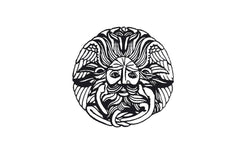
Led by Nicolas Potel in Beaune, Groupe Bellene is composed of the négociant arm Maison Roche de Bellene, the winery arm Domaine de Bellene, and a special back-vintage series under the Collection Bellenum label.
- Maison Roche de Bellene offers a complete range of wines, with an emphasis on individual terroirs from old vines of more than 40 years. All of the growers that Nicolas works with are either organic certified or sustainably farmed.
- Domaine de Bellene represents the wines that are produced and bottled from Nicolas Potel's private vineyard holdings.
- Collection Bellenum is a back vintage series that Nicolas Potel sourced from his friends in the region, offering a magnificent selection of bottled history. The wines have moved only twice in their lives, from the original cellar to Potel's and now to yours!
Nicolas Potel grew up at Volnay's Domaine Pousse d'Or, where his father worked. He trained abroad and returned home in 1996 to build a négociant business and started Maison Nicolas Potel, where he sourced grapes from good parcels, often working with the growers to improve the quality. By 2002, he was making 120 wines from 50 different appellations, and the rest is history!
Press Reviews
Wine Align
91 points - David Lawrason
This is an utterly charming, easy drinking and refined pinot. The hot 2018 vintage has layered in some ripeness with fine aromas of red cherry/raspberry compote, fine shrubby, foresty notes, and subtle oak spice. It is light to medium bodied, very smooth with fine tannin. The length is very good to excellent. Such poise and balance. Best now to 2023. Tasted June 2021.
90 points - Michael Godel
Nothing quite like a “normal” year to craft the most getable and crushable Bourgogne at the behest and passionate hands of Nicolas Potel. Old vines are in the 45 to 50 year range in highest of high density plantings harvested at a “normal” time in this post-modernist, climate adjusted period. That being the 5th to the 13th of September and fruit already ripe, burning the brix and phenol candle at both ends. Nose in to the promise of violets and roses, dive in for crunchy red fruit and some pretty solid tannins. That early yet necessary pick preserved acids with much to say in a pinot noir as tart and spirited as it is enriching of spirit. Despite the high drink-ability factor the structural parts creep up so wait a year for this to settle further. Drink 2022-2025. Tasted June 2021.
90 points - Sara d'Amato
Lovely, bright, crunchy and lively, this entry level Bourgogne from Roche de Bellene rarely disappoints. With a fine, elegant, and well-integrated oak treatment and an invitingly silky texture, this pinot noir is notably compelling and delivers solid value. Excellent length. Tasted June 2021.
- White Wine
- Chenin Blanc
- Organic, Vegan-Friendly
- Dry
- Full Bodied
- 750ml
- 13.50% alc./vol
About the Winery
Château de Parnay
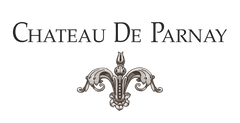
Château de Parnay is the flagship of the AOC Saumur Champigny. The property is located along the Loire river, classified as UNESCO World Heritage, on the most reputable clay and limestone terroirs of the appellation. The historic property was taken over by Mathias Levron & Régis Vincenot in 2006 with the aim of restoring the nobility of this special place.
Drawing their strength from the authenticity of their values, they now cultivate 50 hectares of vines with the aim of producing exceptional wines in a way that respects the environment. They have been certified organic since 2013 and are about to be certified biodynamic too.
The Clos of Chemin des Murs is the jewel of the property! Coming from the imagination of it's orginal owner, Antoine Cristal, this Clos was built, planted and cultivated according to an unprecedented technique. On this half hectare of Chenin Blanc, each vine was planted on the north face of a stone wall. Through a hole in the stone the vine crosses through the wall and allowing the grapes to grow facing the southern sunshine. The vine is said to have its 'foot in the cool and belly in the sun'.
Press Reviews
Wine Align
92 points - David Lawrason
This is from a leading Saumur producer of Loire chenin blanc with vines planted in calcerous clay soils near the Loire River outside of classical town. It is both rich and delicate, a juxtaposition I find in some of the world's best whites. It is not however an intense, flashy, acid and mineral driven chenin. Fermentation in neutral barrels has created a pale gold hue and softened the nose to gentle honeyed, spicy state along with ripe pear/apricot jam fruit. It is medium-full bodied, smooth and dry, almost creamy, with the grape's acidity and minerality arriving more on the finish. The complexity and length are excellent, with a touch of wood spice and bitterness as well. Tasted August 2022
94 points - John Szabo
2019: This leads with a terrific nose very much in the varietal/regional idiom, honeyed, floral, apple and lemon zest-scented, complex and exotic, not to mention stony. The palate displays a similar level of poise and composure, cool, transparent yet with a heavy freight of flavour , and terrific length. This is really quite extraordinary wine, delicious now, but surely capable of a decade or so in the cellar. Top notch. Tasted March 2019.
93 points - Michael Godel
2019: The rare and elusive 100 per cent chenin blanc from Samur makes full use of clay-calcaire-tuffeau soils for this dry and piqued white wine. So crunchy and expressive with an expansive character that fills the mouth by making contact withy every nerve and pour. Benchmark and controlled explosive example, rare or otherwise. Drink 2020-2025. Tasted March 2020.
91 points - David Lawrason
2019: It is rare to come across fine Saumur chenin, a central Loire Valley appellation overshadowed by Vouvray. This is mid-weight, dry and quite firm classic with a fairly generous nose of pear, spice, vague fresh herbs and wet stone. It becomes quite dry and somewhat grapefruity bitter on the finish, trailing solid minerality as well. Very good to excellent length. Tasted March 2020.
- Sweet Wine
- Gros Manseng, Petit Manseng
- Natural, Organic, Vegan-Friendly
- Medium Bodied
- 750ml
- 12.00% alc./vol
About the Winery
Clos Lapeyre

This family farm was traditionally dedicated to mixed farming with livestock, small fruits and grapes which were taken to the local cooperative. From 1985 onwards, the estate was turned over exclusively to viticulture when Jean-Bernard Larrieu gave birth to Clos Lapeyre.
Clos Lapeyre is a 12 ha domain owned by the Larrieu family, in Jurançon, Southwest France. It is situated south of Pau, nestling on steep slopes facing the Pyrenees. The vineyards are planted on terraces at an altitude of 250 m. Jean-Bernard Larrieu makes the wines, and his aim is produce wines that express the specificity of the grape varieties and the soils (pebbly clay/limestone and silex). The wines are certified Organic.
- Red Wine
- Cabernet Franc, Merlot
- Dry
- Medium Bodied
- 750ml
- 13.50% alc./vol
About the Winery
Château du Moulin Noir
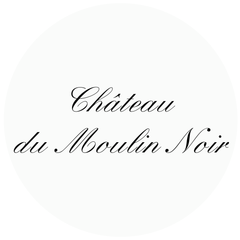
This beautiful right-bank Bordeaux estate consistently produces high-value, elegant and classic Merlot dominant wines and is considered one of the most famous Château of this appellation. Located in Montagne-Saint-Emilion, Château Moulin Noir consists of seven hectares of vineyards on clay and limestone soils.
This château owes its name to a family feuddating back to the Middle Ages. Two brothers were arguing about their father’s legacy with the youngest brother being incredibly jealous that everything went to the elder. He was so jealous that he burnt the château to the ground - Moulin Noir translates to “blackened Mill”.
Press Reviews
Wine Align
91 points - Sara d'Amato
This notably complex right bank blend from a satellite appellation of Saint-Emilion offers appealing savory notes along with a mineral, iron component as well as licorice spice. The oak treatment is wonderfully integrated with wood spice elevating the bright red fruit. Harmoniously matured, graceful and very elegant. The staying power of the finish is impressive. Drinking very well now. Tasted January 2019.
- White Wine
- Clairette, Grenache Blanc, Marsanne, Picpoul
- Organic, Vegan-Friendly
- Dry
- Full Bodied
- 750ml
- 13.50% alc./vol
About the Winery
Château de Montfaucon

Just across the Rhone river from the beautiful vineyards of Chateauneuf-du-Pape, the Lirac appellation extends itself on the low hills alongside the river. The history of Château de Montfaucon dates back to the 11th century when the castle's first tower was built. The castle's role in history was strategic; the Rhône River was the border between the French Kingdom and the Holy Roman German Empire. Montfaucon was one of many castles and fortresses along the Rhône River constructed to guard the border.
Rodolphe de Pins took over the family estate of Montfaucon in 1995 and subsequently rebuilt the winery and began practicing sustainable agriculture. He honed his winemaking skills in Barossa at Henschke and Vieux Telegraphe in Châteauneuf du Pape before returning to Lirac, so needless to say, his familiarity with the local varieties is well established.
Press Reviews
Wine Align
92 points - Michael Godel
Comtesse Madeleine may not be a Rhône original out of the Lirac appellation but my if it does not strike as something profound. The blend is 40 per cent each marsanne and clairette with (10) grenache blanc (plus perhaps a splash of picpoul) for a devilishly flinty white with a veritable scent of animal musk, like porchetta releasing that tell-tale aroma just after the skin begins to render at heat. This is the real deal in French white wine for which the blending process and subsequent elévage can pull out meaning to change the way wine will speak to those that are listening. Intently in this case and for great reason. Drink 2023-2026. Tasted February 2023.
92 points - Sarah d'Amato
A lively and characterful blend of marsanne, clairette and grenache blanc. Expressive and concise with freshness created through a combination of acidity and minerality. Features notes of rosebud, honeysuckle and ginger spice along with thyme, pear, lanolin, fresh fig and lemon. A compelling assemblage that brings new dimension and complexity through a succession of undulating sensorial waves. Honestly made with a light-handed touch. Balanced and lengthy. Tasted February 2023.
91 points - Megha Jandhyala
This is an aromatically expressive blend of clairette, grenache blanc, marsanne, and picpoul, from Lirac, an appellation that lies just across the Rhône river from famed Châteauneuf-du-Pape. I really like its glossy, smooth texture and flavours of apricots, lemons, and grapefruits, alongside subtle notes of vanilla and wet stones. The palate is integrated and balanced, with a sense of both richness and freshness. The finish is graceful and long-lasting. Tasted February 2023 by Critic Understudy Megha Jandhyala.
Decanter
90 points
Distinctly nutty from the oak, macadamia, gently grilled elements to the fruit. Good acidity. Little touch of honeycomb on the finish. Acidity is balanced. Drinking window 2020 - 2022.
- Red Wine
- Mourvèdre / Monastrell, Syrah
- Natural, Organic, Vegan-Friendly
- Dry
- Full Bodied
- 750ml
- 13.5% alc./vol
About the Winery
Domaine Frédéric Brouca

Frédéric grew up in Normandy and met his Canadian wife Elaine at university in Lille, Northern France. They live a nomadic lifestyle (Canada, India, Singapore and USA) though Frédéric spends about half of his time in Faugères. Since early age, Frédéric had a calling for farming and the fierce desire to become a winegrower. After completing a Masters Degree in Finance in 2001, Frédéric went back to college for a Sommelier diploma and started his career as a Burgundy wine broker.
In late 2012, Frédéric and Elaine were fortunate to take over 25 acres of old vines in Faugères, organically farmed for twenty years and deeply rooted in schist soils.
2013 was the inaugural vintage for Domaine Frédéric Brouca. In his modest winery in the village of Laurens, Frédéric is creating a new vision for Faugères wines; fresh, vibrant and made without artifice. Nothing revolutionary, simply returning to our grandparent's ideology of farming and winemaking to craft 'Vins Vivants'. The Faugères Appellation is in the heart of Languedoc in the Hérault department. Here, winemaking dates back to the Greek times and was developed during the Roman Era. It wasn't until the early 1900's, however, that the wines became more widely known for its unique schist soils and moderate Mediterranean climate. These villages are heavily reliant on wine as an important part of their culture and economy.
The area is stunning with mountain views and close proximity to the Mediterranean Sea (20 miles / 30 kms). Faugères has a long history of responsible farming. It boasts the highest percentage of organic vineyards for any AOC in all of France with almost 50% of farmers making the choice.
Press Reviews
Wine Align
93 points - John Szabo
Clos Sauveplan is a blend of about 3/4 high density planted mourvèdre and the balance in half-century-old syrah from the lieu-dit of the same name, a plateau in the Faugères AOC in southern France. It's showing beautifully at the moment, rich, redolent of fresh black forest fruits, blackberry coulis, wild violets and cracked black peppercorn, really quite a tour de force. The palate is broad but fresh, impeccably balanced and so lively considering the warm vintage, declared at 12.5% alcohol but coming across as riper and denser than the numbers would imply. Tannins are silky and resolving nicely, and length, depth, and ultimately complexity, are excellent. One of Brouca's best to date I'd say; drink or hold a half dozen years - the stuffing augurs well for development. Tasted January 2024.
92 points - Michael Godel
The source for this co-ferment of mourvèdre and syrah is a “clos,” meaning an isolated walled vineyard in a lieu-dit called “Sauveplane”, plateau at the eastern limit of the Faugères appellation. A mix of 20 and 40 year-old vines, volcanic soils, some whole cluster fermentation. Exotically spiced, sweetly volatile. Low-level Brettanomyces, so bloody Faugères, exemplary and expected for a wine to speak up on behalf of this particular sense of place. The kind of Languedoc red that sommeliers and naturalists will share and swig with reckless abandon while those who have never tried this style and origin may be left to wonder in confounded disarray. Just know that this is very correct for producer, style and place. Drink 2024-2027. Tasted January 2023.
91 points - Sara d'Amato
From old vines farmed with minimal intervention on the plateau of "Sauveplane", a lieu-dit on the eastern edge of Faugères. Spontaneously co-fermented syrah and mourvèdre grapes are left unfined and unfiltered in the low-interventionist style of Fredric Brouca. Subsequently aged 13 months in oak resulting in very gentle spice and pleasantly mellow tannins. Offers a notable sense of place and varietal character. Relatively speaking, the wine is quite clean and still exhibits plenty of fresh fruit and very good length. Tasted January 2024.
















